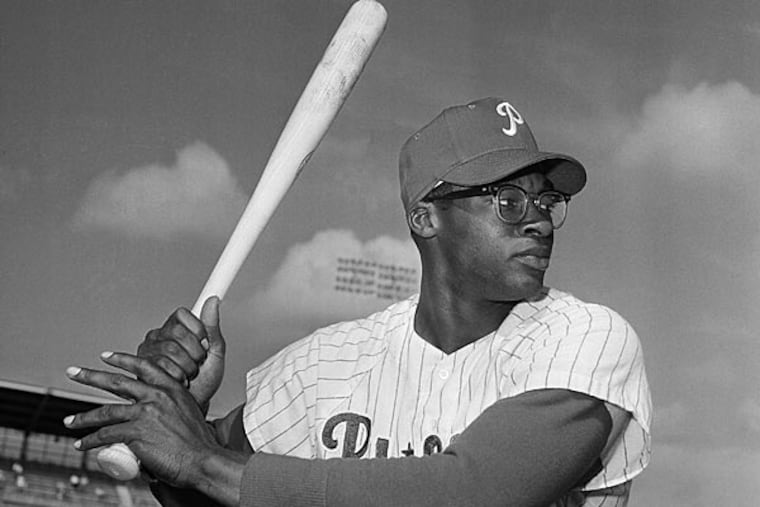Dick Allen’s Hall of Fame vote delayed until 2021 by the coronavirus
Allen was supposed to find out this winter if he was finally heading to the Hall of Fame. Now, he'll have to wait until the Fall of 2021.

Dick Allen’s long wait to enter the Baseball Hall of Fame was extended by at least another year on Monday because of the coronavirus pandemic.
The Hall of Fame announced Monday that the two 16-member era committees scheduled to meet this winter -- the Golden Days Committee and Early Baseball Committee -- will instead meet in fall 2021.
Allen is expected to be one of the 10 candidates on the Golden Days Ballot, which is reserved for candidates “whose primary contributions to the game came from 1950 to 1969.” If elected, Allen would be enshrined in summer 2022.
“With the nation’s safety concerns, the travel restrictions, and the limitations on group gatherings in effect for many regions, it is not possible to ensure that we can safely and effectively hold these committee meetings,” said Hall of Fame chairman Jane Forbes Clark.
“The Era Committee process, which has been so effective in evaluating Hall of Fame candidates, requires an open, yet confidential conversation and an in-person dialogue involving the members of the 16-person voting committee.”
Allen came one vote shy in 2014, but there seemed to be momentum building that he would finally be able to break through this winter. A cast of Hall of Famers -- including Mike Schmidt, Hank Aaron, and Willie Mays -- have came out in support of Allen’s candidacy. Now, Allen will wait a year and hope the momentum is still there.
Allen played 15 seasons, was a seven-time All-Star, led his league in OPS four times, hit 30 or more homers six times, had six seasons of 90 or more RBIs, was the National League rookie of the year in 1964 with 29 homers for the star-crossed Phillies, was the American League MVP with the Chicago White Sox in 1972 with a 199 OPS+, and finished his career with a .292 batting average.
He was baseball’s best hitter over the first decade of his career, as Allen’s 165 OPS+ from 1964 to 1973 led the majors, better than all-time greats such as Aaron, Harmon Killebrew, and Willie McCovey. From 1880 to 1990, 24 players registered a slugging percentage of .510 or better over at least 6,300 plate appearances. Allen is the only one not in the Hall of Fame.
His Hall of Fame case will receive a boost next month when the Phillies retire his No. 15 on Sept. 3, which is the 57th anniversary of Allen’s major-league debut.
By doing so, the Phillies disregarded their policy on retired numbers being reserved for Hall of Famer players. They also knew that retiring his number could help Allen’s case with the committee. But now the wait continues.
“Regardless of the fact that he’s on the ballot, that wasn’t driving the decision, but I think it’s just serendipity that it is,” Phillies managing partner John Middleton said earlier this month. “Because you’re right, I think there’s going to be a lot of articles written about him.
“Look, at least in my opinion, when you look at this guy’s career, when you look at what he’s achieved, it’s pretty remarkable. I don’t know how anybody could say this isn’t a Hall of Famer. I’m really hopeful. I thought he was going to make it the last time.”